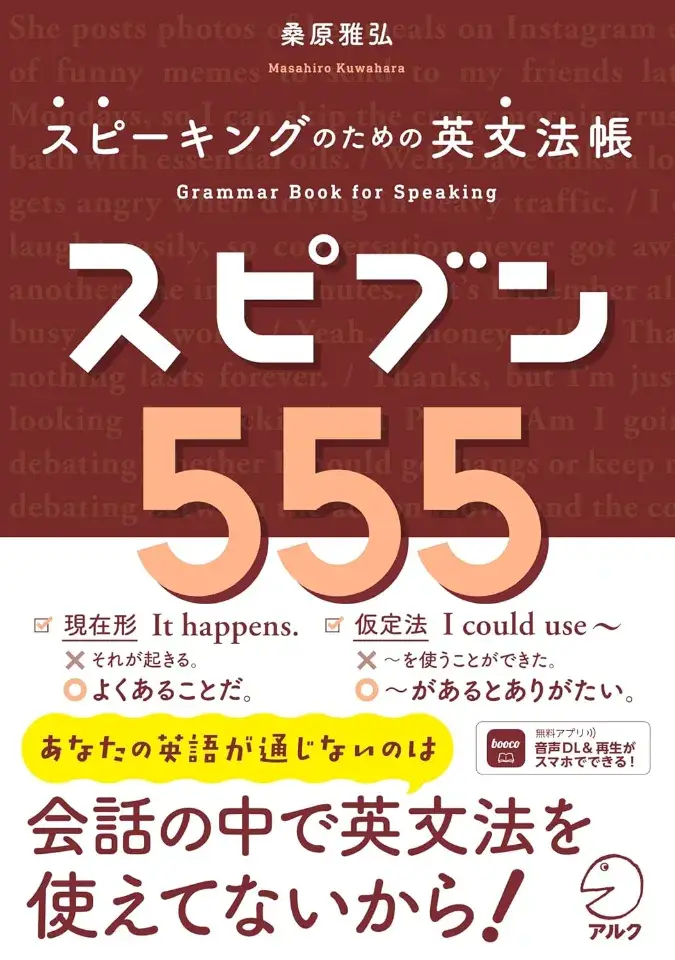
9月が始まり、心温まる秋の訪れを感じ始めている方も多いでしょう。アルクのカナダ人スタッフが執筆する連載「Small Talk」で、9月にまつわる知識や文化、言葉の面白エピソードをひも解いていきます。9月が出生率の最も高い月で、株を売ってはいけない月だってご存じでしたか?
目次
英語エッセイ Thoughts on September(9月について思うこと)
実りの秋、食欲の秋、芸術の秋、などなど・・・。秋は、さまざまなことを楽しんだりスタートしたりと、心や人生を豊かにしてくれる季節です。この季節の始まりとも言える9月には、どんな由来やトリビアがあるのでしょうか?
A Little History
Quick! How many days are in September?
Thirty days has September, April, June and November. This is the first sentence of what is likely the very first rhyme memorized by schoolchildren in English-speaking countries around the world. Used for remembering which months have which number of days, it reminds us just how crazy our calendar is! Sometimes I see September 31 on a letter or report, and it makes me pause. “Hold on ...”
In the old Roman calendar, September only had 29 days. At that time, the month was called “Mensis September” – Latin for “the seventh month.” The Roman calendar originally started in March but was later adjusted to include the months of January and February, moving September to the ninth month. In the year 46 B.C., Julius Caesar introduced a new calendar system, the Julian calendar. He added 10 days to the year and September was expanded to 30 days. The Julian calendar was later replaced by the calendar we use today – the Gregorian calendar – because it didn’t accurately reflect the time it takes our planet to orbit once around the sun.
Speaking of the sun, the autumnal equinox falls on September 23 this year. (An equinox occurs when the sun is directly above the equator and day and night are nearly of equal length.) Goodbye summer, hello fall – at least here in the Northern Hemisphere. The full moon that occurs around this time is often called the "Harvest Moon." Traditionally, farmers used the moon’s bright appearance to help them gather their crops late into the night.
ちょっとした歴史
すぐに答えてください!9月は何日間あるでしょうか?
30日あるのは9月、4月、6月、11月。これは、おそらく世界中の英語圏の学童が初めて覚える韻の最初の一文です。どの月が何日あるのかを覚えるのに使われ、暦がいかにおかしいかを思い出させます!時々、手紙や報告書に9月31日と書かれているのを見ると、私は思考が止まってしまいます。「ちょっと待って・・・」と。
古代のローマ暦では、9月は29日間しかありませんでした。当時、この月は「Mensis September」と呼ばれていました――ラテン語で「7番目の月」という意味です。ローマ暦はもともと3月から始まっていましたが、後に1月と2月を含めるよう変更され、9月は9番目の月となりました。紀元前46年、ジュリアス・シーザーが新しい暦体系であるユリウス暦を導入しました。彼は1年に10日を加え、9月を30日間へと拡大したのです。ユリウス暦はのちに、私たちが今日使用しているグレゴリオ暦に取って代わられました――なぜなら、ユリウス暦は、地球が太陽の周りを1周するのにかかる時間を正確に反映していなかったからです。
太陽といえば、今年は9月23日が秋分の日にあたります。(春分や秋分は太陽が赤道の真上にあるときにあたり、昼と夜の長さがほぼ同じです。)夏よ、さようなら、秋よ、こんにちは――少なくともここ北半球においては。この時期の満月は、しばしば「収穫の月」と呼ばれます。伝統的に、農家の人たちは、夜遅くに作物を収穫するために月の明るい姿を利用していました。
And Now, a Little Trivia
According to some studies, September ranks as the most common birth month of the year. It could be because September falls nine months after the holiday season in many countries! (In most countries, a full-term pregnancy is considered to be nine months. Japan uses a different way of counting.) My husband’s birthday often falls on “Respect for the Aged Day” here in Japan, but I have finally stopped teasing him about it. (He is only a couple of years older than I am.)
Perhaps you should wait a little before selling your stocks. According to some research, September has been the worst-performing month for the Dow Jones Industrial Average and the S&P 500 index over the past 50 years.
September’s role as the gateway to autumn has given the month a symbolic connection to transition and reflection, inspiring a great number of musicians. In fact, there are more pop and classic songs with September in the title than any other month! One of my all-time favorite songs is “September,” by Earth, Wind & Fire. Hmm ... I feel like putting it on. Hey, let’s dance!
ちょっとしたトリビア
いくつかの研究によると、9月は1年で最も多い誕生月とされています。これは、多くの国において、9月が休暇シーズンの9カ月後にあたるためかもしれません!(ほとんどの国では、妊娠期間は9カ月間と考えられています。日本は異なる計算方法を使いますが。)私の夫の誕生日は、ここ日本ではよく「敬老の日」と重なりますが、私はついにそれについてからかうのをやめました。(彼は私よりもほんの数歳しか年上ではありません)
おそらく、株を売るのは少し待ったほうがいいでしょう。いくつかの調査によると、9月は過去50年間で、ダウ工業株30種平均とスタンダード・アンド・プアーズ総合500種株価指数の値動きが最も悪い期間でした。
秋への入り口としての9月の役割は、この月を季節の移り変わりや自己の内省に繋がる象徴とし、数多くの音楽家たちを刺激してきました。実際、題名に「September」が含まれるポップスやクラシックの楽曲は、他のどの月よりも多いんです!私のこれまでで一番のお気に入りの1曲は、アース・ウィンド・アンド・ファイアーの「September」です。うーん・・・この曲をかけたくなってきた。さあ、踊りましょう!
語注
A Little History
| 語句 | 意味 |
|---|---|
| rhyme | 韻 |
| pause | 休止する |
| Roman calendar | ローマ暦 |
| Julius Caesar | ジュリアス・シーザー ※古代ローマの将軍・政治家 |
| Julian calendar | ユリウス暦 |
| replace A by B | AをBに置き換える |
| Gregorian calendar | グレゴリオ暦 |
| orbit | (惑星などが~の)軌道を回る |
| autumnal equinox | 秋分(の日) ※equinoxは「昼夜平分時、春分、秋分」の意。 |
| fall on | (日付が)~にあたる |
| equator | 赤道 |
| Northern Hemisphere | 北半球 |
And Now, a Little Trivia
| 語句 | 意味 |
|---|---|
| rank as ~ | ~の部類に入る、~として位置付けられている |
| full-term pregnancy | 満期妊娠 |
| Respect for the Aged Day | 敬老の日 |
| tease | いじめる、からかう |
| Dow Jones Industrial Average | ダウ(ジョーンズ)工業株30種平均 ※ニューヨーク証券取引所優良株の30種平均 |
| S&P 500 index | スタンダード・アンド・プアーズ総合500種株価指数 ※Dow Jones Industrial Averageと共にアメリカの代表的株価指数 |
| transition | 推移、変遷 |
| reflection | 内省、熟考 |
エッセイ豆知識
May-September(年の差恋愛)
This is used when describing a romantic relationship in which one person is much younger than the other. The age of the younger person is likened to May, and the age of the older person is likened to September. “I know a May-September romance doesn’t seem like a big deal right now, but what about in 20 years ...”
これは、一人がもう一方よりずっと年下の恋愛関係を表現する際に使われます。年下の方の年齢が5月、年上の方は9月にたとえられます。例:「今は年の差恋愛は大したことじゃないように思えるけど、20年経ったときはどうするんだろう・・・」
The autumn years(晩年、人生の秋)
This idiom refers to the later years of one’s life. “She finally only started to relax and truly enjoy life when she reached her autumn years.”
人生の晩年を指す慣用句です。例:「彼女は晩年になってようやくのんびりして、心から人生を楽しめるようになった」
Reap the harvest(報われる)
This is used to describe a situation where someone’s hard work has paid off. “I’m working so hard right now, but I know I will be reaping the harvest in just a couple of years.”
- reap:~を収穫する
誰かの努力が実を結んだ状況を説明するために使われます。例:「今、私は懸命に働いていますが、あと数年で報われると分かっています」
Make hay while the sun shines(チャンスをものにする、好機を逃さない)
In many countries, September is the last month for making hay. This idiom means to make the most of an opportunity while it is available. It was one of my mother’s favorite expressions, so I always smile when I hear it. “We both have tomorrow off, so let’s go out tonight. Let’s make hay while the sun shines!”
多くの国では、9月は干し草を作る最後の月です。この慣用句は、チャンスがあるうちに最大限に活用することを意味します。私の母が好きだった表現の一つで、私はこの言葉を聞くといつも笑顔になります。例:「明日は2人とも休みだから、今夜は出かけよう。チャンスはものにしないとね!」
Pitch in(協力する)
During harvest time, many people on a farm work together, sometimes pitching (lifting and throwing) hay with a pitchfork. The expression “pitch in” means to help someone work, often in a group effort. “Everyone in my office pitched in and we completed the project on time.”
収穫の時期に、農場で多くの人々が一緒に働きます。時には、熊手を使って干し草を投げる(持ち上げて放る)こともあります。「pitch in」とは、しばしばグループで協力して、誰かの仕事を手伝うことを意味します。例:「私の会社のみんなが協力してくれて、そのプロジェクトを予定通りに完了できました」
トップ画像:Peter Wendt from Unsplash
boocoで読める!アルクの新刊、続々登場
語学アプリ「booco」なら、アルクのベストセラー書籍200タイトル以上が、学習し放題!
「キクタン」などアルクの人気書籍800冊以上が音声対応。「読む」に対応した書籍では、本文と音声をスマホで手軽に利用できるほか、一部の書籍では、学習定着をサポートするクイズ機能で日々の復習や力試しも可能です。さらに、Plusプランに加入すれば200冊以上の書籍が学習し放題に!
boocoの「読む」機能では、次のような使い方ができます。
① 学習したいページを見ながら音声を再生できる
② 文字サイズや画面の明るさを調整できる
③ 書籍内検索ができる
※ これらの機能には一部の書籍が対応しています。

▼「booco」の無料ダウンロードはこちらから






